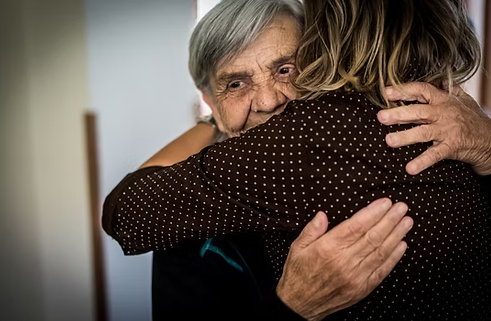
Diploma in Palliative Care
Course Description:
This comprehensive online course provides a foundational understanding of palliative care principles and practices. It equips learners with the knowledge and skills necessary to provide high-quality, compassionate care to individuals with life-limiting illnesses and their families.
Target Audience:
- Healthcare professionals (nurses, doctors, social workers, pharmacists, etc.)
- Caregivers (family members, volunteers)
- Students interested in pursuing a career in palliative care
Course Objectives:
Upon successful completion of this course, learners will be able to:
- Define palliative care and its key principles.
- Understand the physical, psychological, social, and spiritual needs of patients with life-limiting illnesses.
- Assess and manage pain and other distressing symptoms.
- Communicate effectively with patients, families, and interdisciplinary teams.
- Provide psychosocial and spiritual support to patients and families.
- Develop and implement comprehensive care plans.
- Advocate for patient rights and quality of life.
- Utilize ethical and legal considerations in palliative care.
- Integrate cultural and spiritual beliefs into care delivery.
- Apply palliative care principles in various healthcare settings.
Course Modules:
Module 1: Introduction to Palliative Care
- Definition and scope of palliative care
- Key principles of palliative care (e.g., holistic care, symptom management, communication, teamwork)
- History and evolution of palliative care
- Ethical and legal considerations in palliative care
Module 2: Communication and Interpersonal Skills
- Effective communication techniques with patients, families, and healthcare teams
- Active listening and empathy
- Breaking bad news and discussing end-of-life decisions
- Family meetings and interdisciplinary rounds
- Cultural and spiritual considerations in communication
Module 3: Pain and Symptom Management
- Assessment and management of pain (pharmacological and non-pharmacological)
- Management of other common symptoms (e.g., dyspnea, nausea, vomiting, constipation, delirium)
- Use of complementary and alternative therapies (e.g., massage, music therapy)
- Symptom control in advanced disease
Module 4: Psychosocial and Spiritual Care
- Assessment of psychosocial needs (e.g., anxiety, depression, grief, isolation)
- Providing emotional and psychological support to patients and families
- Addressing spiritual and existential concerns
- Working with grief and bereavement
- Referral to appropriate support services (e.g., counseling, support groups)
Module 5: Ethical and Legal Issues
- Advance care planning and decision-making
- Ethical dilemmas in palliative care (e.g., futility, resource allocation)
- Legal and regulatory frameworks for palliative care
- Patient autonomy and informed consent
- End-of-life decision-making and legal considerations
Module 6: Care of the Dying Patient
- Physical and psychological changes at the end of life
- Comfort care measures
- Managing distressing symptoms in the final hours and days
- Supporting families during bereavement
- Post-mortem care
Module 7: Interdisciplinary Team Care
- Role of the interdisciplinary team (doctors, nurses, social workers, chaplains, pharmacists, etc.)
- Effective teamwork and communication within the interdisciplinary team
- Case conferences and care planning meetings
- Utilizing community resources and support services
Module 8: Palliative Care in Different Settings
- Palliative care in hospitals, hospices, long-term care facilities, and community settings
- Home-based palliative care
- Integration of palliative care into primary care
- Palliative care for specific conditions (e.g., cancer, neurodegenerative diseases, HIV/AIDS)
Module 9: Research and Evidence-Based Practice
- Key research findings in palliative care
- Evidence-based guidelines for symptom management and care delivery
- Critical appraisal of research literature
- Quality improvement initiatives in palliative care
Module 10: Self-Reflection and Professional Development
- Self-assessment of knowledge, skills, and attitudes in palliative care
- Strategies for personal and professional growth
- Developing a personal philosophy of palliative care
- Advocacy for improved access to palliative care
Course Access
You'll be added to this within 24 to 48hrs after purchase. Please make sure you put a working email address as your login will be emailed to you.
Program Duration and Study Hours
Duration: 6 months
All online courses must be completed within the allotted timeframe.
If you have not completed your course within the allotted timeframe, we reserve the right to restrict access to your course.
For questions regarding this policy, please contact us
Course Recognition
CPD Points Assigned - 150
Recognized by
Qualifications Framework
Awards
Associate degree Diploma of Completion



